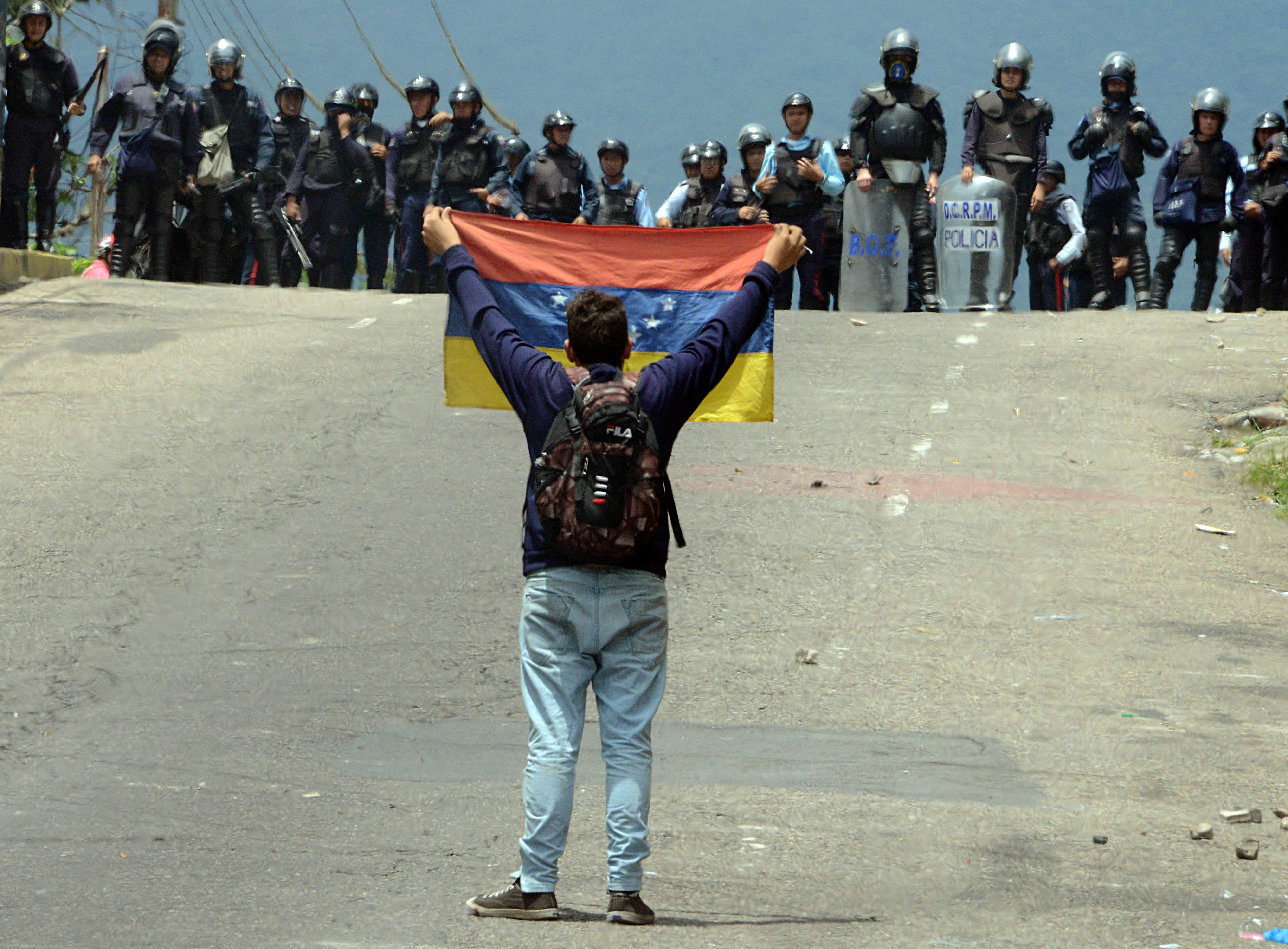Voices from South-America
The Venezuelan Church’s mounting concerns over the “serious situation in the Country”, on the brink of an economic disaster, with 70% of its population in a state of poverty. For Monsignor Diego Rafael Padrón Sánchez, Archishop of Cumaná, president of the Bishops’ Conference of Venezuela, we are at a crossroads: either “total submission” to authoritarian power” or “social outburst of violence.” Also Pope Francis has been informed in detail about the situation: “He wrote and sent messages but there is nothing that can be done because the government has turned a deaf ear, it listens to no one”

Venezuela is a step from the chasm: the lack of food and medicine, high levels of violence and crime, skyrocketing inflation (180% in 2015, but according to forecasts by the International Monetary Fund, figures will escalate to 500% in 2016 and to 1600% in 2017), scarce availability of products except on the black market, rise in looting, poverty spreading like wildfire, blackout of electricity and water. President Nicolas Maduro, who succeeded Hugo Chavez, declared a “state of economic emergency” and threatened to expropriate the large food factories that halted industrial production owing to the impossibility of acquiring raw materials, and to arrest the executive boards, mobilizing the army against the risk of a coup backed by foreign powers. Maduro is also trying to block the referendum calling for his dismissal backed by 2 million signatures, collected by the opposition. For the Venezuelan Church, increasingly worried for the “serious situation in the Country”, we are facing a crossroads: “total submission” to authoritarian power or “an outbreak of violence across society”, declared Monsignor Diego Rafael Padrón Sánchez, Archbishop of Cumaná, president of the Bishops’ Conference of Venezuela. “We are in a state of deep suffering and we feel helpless”, he said. Also Pope Francis has received detailed information about the situation: “He wrote and sent messages but there is nothing he can do because the government has turned a deaf ear, it will listen to nobody.”
“The anguish” of the population. Venezuelan bishops had already expressed their position past April 27, in a long statement listing all the “anguishes” of the population: “The serious shortage of basic goods, food and healthcare products”, escalating “murderous and inhuman crimes” – Caracas, the Country’s capital city, is the most violent city in the world, in Venezuela: 14 to 28 thousand murders per year according to estimates -, “water and electricity rationing coupled by deep-rooted corruption at all levels of government and society”, worsened by ideology and pragmatism, have exacerbated this situation.”
Businesses at risk expropriation, the invitation of the bishops. With respect to Maduro’s recent threat to confiscate all factories that have discontinued production, Monsignor Padrón Sánchez underlined “the population’s opposition to this measure, also because enterprises account for the production of 80% of the food consumed in the country.” “The Government cannot nationalize companies for they would automatically be paralyzed. Similar measures were taken in the past. Companies discontinue production and everything is lost”, he added.
The Venezuelan bishops called on the government “to summon private enterprises and seek joint solutions to the Country’s problems.”
“The economic system is the root cause of this disaster.” Although Venezuela has the largest oil reserves in the world, owing to the fall in the price of crude oil and the mismanagement of recent years risk the Country is at risk of going bankrupt. The president of the Venezuelan Bishops confirmed this scenario. “Expensive products such as medicines are hard to obtain. The economy is not working.
The economic system as such is the cause of the disaster in the Country “, he said. Compared to the end of April – when the statement was written – the situation has grown “worse for the famine, the food shortage, and there is an ongoing clash between the executive and legislative powers”, since the National Assembly is in the hands of the opposition. Violence and crime, which “the government is unable to control continue to prevail throughout the Country.” Against this backdrop “the press is forced to undergo constant restrictions, extended also to radio and television stations.” The Church can express herself freely, “but we have been told that we belong to the opposition, that we are putschists “.
Caritas is forbidden to distribute food and foreign medicines. For Caritas it is very difficult to help the poor with food and medicines. Medicine shortage has raised the mortality rate of the weakest brackets, of the elderly and children in particular.
“At national level we are doing our best to distribute medicines – he said -. We asked the government to authorise Caritas to access medicines donated by the US or by other Latin-American or European Countries, but our request was turned down.” Local Caritas are not allowed to distribute food. “It’s forbidden by law, Caritas workers risk being put into jail. We don’t know how to help the population.”
Risk of “social upheaval.” The bishops endorse the proposal of a referendum signed by two million people. They consider it “a right of the population”, although “the government is doing all it can to prevent it.” “It could be an important tool to reduce tensions across the population –he underlined -. But they think it’s an attack on the president.” “It is very likely that if the government fails to adopt peace-building, democratic measures to address the serious situation in the Country, we will soon be facing a social upheaval. This is a possible scenario which we obviously don’t want”, said Monsignor Padrón Sánchez.”
“We are moving into a situation that closely resembles the one in Cuba, where the population is subject to the will of the leaders – he remarked – the government is leading the Country into a State of extreme poverty, with the aim of total control over its population and institutions. We currently face two possible scenarios: the population’s submission to authority or overcoming this situation with acts of violence.”